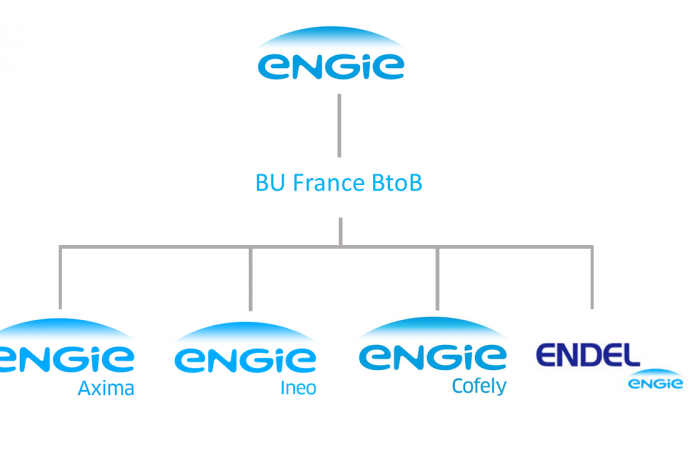The phase out of HCFCs in the Russian Federation puts, ammonia in an ideal position as a replacement refrigerant especially in industrial refrigeration. However, current regulatory and other obstacles need to be addressed in order to pave the way for the wider uptake of ammonia in Russia. A conference in October will address different constraints and its results will feed into future legislative changes.

In fulfilling its international commitments under the Montreal Protocol on Substances that Deplete the Ozone Layer (1987), the Russian Federation is phasing out ozone depleting hydrochlorofluorocarbons (HCFC). The 2015 consumption reduction target is 90 %, the 2020—99.5 %, and 2030—100 %. Due to their low cost, widespread availability, and the relatively small investments needed to establish manufacturing facilities, natural refrigerants represent ideal replacements to HCFCs. This is especially the case of ammonia, whose current production amounts to 9% of the total share in Russia. Moreover, Russian designers and installers, especially the older generation, are familiar with ammonia systems, the share of which is growing despite strict administrative barriers.
Strict regulatory and control measures
Tough administrative and regulatory barriers have a major impact on limiting the use of ammonia in new refrigerant plants. The prohibitive regulations, meant to guarantee safety of old-fashioned systems several years ago, do not take into account recent developments in system design, such as the availability of safety and failure prevention systems, or the extensive international and Russian experience in efficient and safe use of ammonia refrigerating systems.
Since 1995, all refrigeration systems with a charge of more than 1 tonne of ammonia have come under the control of the Federal Service for Ecological, Technological and Nuclear Supervision (Rostekhnadzor) and businesses are required to obtain a license to operate an ammonia plant.
A major issue from the safety point of view is that the majority of ammonia installations in Russia are obsolete and use more than 20-year-old refrigeration equipment. As a result of the stricter control measures many installations have been converted to other refrigerants, while some have been upgraded to more recent ammonia technology to avoid special safety requirements. This is for example the case of a brewery Baltika-Voronezh, which used to operate with an ammonia charge of three tons and has been upgraded to a system that now uses a total ammonia charge of 260kg.
Other major constraints in uptake of ammonia
Apart from overregulation, other factors need to be looked at when considering obstacles in expanding the use of ammonia in Russia, such as:
Within the project “Phase Out of HCFCs and Promotion of HFC-Free Energy Efficient Refrigeration and Air-Conditioning Systems in the Russian Federation Through Technology Transfer”, of the Ministry of Natural Resources and Environment of the Russian Federation (MNRE), Global Environment Facility (GEF) and the United Nations Industrial Development Organisation (UNIDO), a conference will be held on 16 October 2013 in Moscow. The conference, titled “Natural refrigerant ammonia. Chemical and technical security of the Russian Federation”, will be dedicated to prospects for the increased use of ammonia as a refrigerant in the Russian Federation, experience in its use in the country and abroad, and need for initiating changes to legislation that favor the proliferation of ammonia and other natural refrigerants with respect of the chemical and technical security of the Russian Federation.
Based on its results, the Conference will formulate and submit to the Government of the Russian Federation proposals on amendments to the existing legislation and identify measures for natural refrigerant promotion.
Strict regulatory and control measures
Tough administrative and regulatory barriers have a major impact on limiting the use of ammonia in new refrigerant plants. The prohibitive regulations, meant to guarantee safety of old-fashioned systems several years ago, do not take into account recent developments in system design, such as the availability of safety and failure prevention systems, or the extensive international and Russian experience in efficient and safe use of ammonia refrigerating systems.
Since 1995, all refrigeration systems with a charge of more than 1 tonne of ammonia have come under the control of the Federal Service for Ecological, Technological and Nuclear Supervision (Rostekhnadzor) and businesses are required to obtain a license to operate an ammonia plant.
A major issue from the safety point of view is that the majority of ammonia installations in Russia are obsolete and use more than 20-year-old refrigeration equipment. As a result of the stricter control measures many installations have been converted to other refrigerants, while some have been upgraded to more recent ammonia technology to avoid special safety requirements. This is for example the case of a brewery Baltika-Voronezh, which used to operate with an ammonia charge of three tons and has been upgraded to a system that now uses a total ammonia charge of 260kg.
Other major constraints in uptake of ammonia
Apart from overregulation, other factors need to be looked at when considering obstacles in expanding the use of ammonia in Russia, such as:
- Lack of efficient HVAC&R training and certification systems for professionals engaged in design, installation and servicing of ammonia systems.
- Lack of state-run programs for natural refrigerant promotion on the territory of the Russian Federation.
- Obvious disparity between ammonia systems and HCFC and HFC systems. Except for large charge cases, HFC and HCFC systems do not require Rostekhnadzor inspections or mandatory project approval and can be commissioned and paid in phases. Even more, many freon systems are installed without any design documentation or endorsement.
- Myths about the danger of ammonia stemming from Soviet information campaigns for limitation of ammonia use.
Within the project “Phase Out of HCFCs and Promotion of HFC-Free Energy Efficient Refrigeration and Air-Conditioning Systems in the Russian Federation Through Technology Transfer”, of the Ministry of Natural Resources and Environment of the Russian Federation (MNRE), Global Environment Facility (GEF) and the United Nations Industrial Development Organisation (UNIDO), a conference will be held on 16 October 2013 in Moscow. The conference, titled “Natural refrigerant ammonia. Chemical and technical security of the Russian Federation”, will be dedicated to prospects for the increased use of ammonia as a refrigerant in the Russian Federation, experience in its use in the country and abroad, and need for initiating changes to legislation that favor the proliferation of ammonia and other natural refrigerants with respect of the chemical and technical security of the Russian Federation.
Based on its results, the Conference will formulate and submit to the Government of the Russian Federation proposals on amendments to the existing legislation and identify measures for natural refrigerant promotion.
MORE INFORMATION
Related stories



